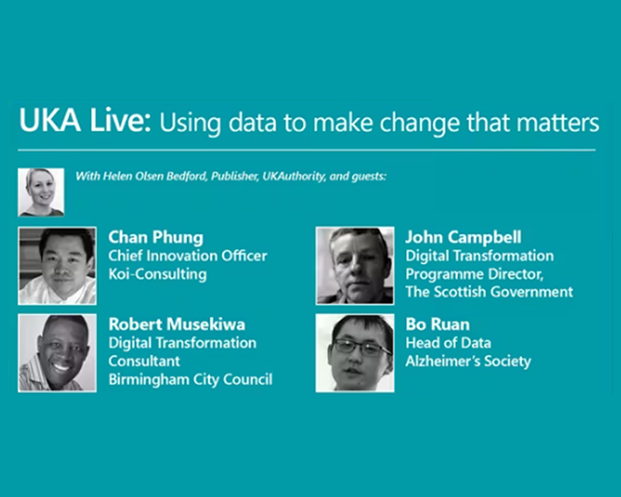17th August 2023
Careful consideration of key issues combined with a strong data management platform can support the use of the technology for the public good, writes Mark Burgess, managing director at Civica
Support high-touch individuals seeking social services is not where it needs to be, and that is partly due to not making the best use of the relevant data.
Bo Ruan, head of data at the Alzheimer's Society, has made the point that better data, used in the right context, could help people with dementia, for example, live independently for longer, ensure they understand their rights and entitlements and deal with their financial arrangements. It's disappointing that this is still an ambition rather than common practice, given the immense amount of data now being collected in public services.
It's also part of a broader question on whether that data is currently being treated as a business asset. If it is not, the case is made that by default it is a liability, so a focus should be on how to ensure it becomes the former. This is especially important with the rise of artificial intelligence as a potentially valuable tool in dealing with big societal challenges – and a growing realization that it needs the right high-quality data to make this possible.
This formed the basis of a recent UKA Live discussion supported by Civica, with contributions from Bo Ruan, John Campbell, digital transformation program director for the Scottish Government, Robert Musekiwa, digital transformation consultant at Birmingham City Council, Chan Phung, chief innovation officer at Koi-Consulting, and UKAuthority publisher Helen Olsen Bedford.
Problems
Despite pockets of good practice, there is a lot of scope for improvement in the public sector’s use of data. Among the problems are that:
- senior leaders often acknowledge the importance of data at the conceptual level but do not always know the practical steps to support actions toward improvement
- often there is not enough consideration related to the source and nature of data before it is applied
- and it is often not fit for purpose, being inaccurate, out-of-date, or not appropriate to support a specific use case.
There has been a lot of talk about the value of large language models (LLM), a type of AI algorithm that uses deep learning techniques and very large datasets to understand, generate and predict new content. But the discussion brought up a warning against putting too much faith in these as, while they work very fast, they are not as intelligent as a skilled human; and they may inherit a bias in the way the data has initially been generated.
It raises the question of whether the skills are available to train a model to shed any bias. Rob Musekiwa suggested this may never be fully achievable as there are issues around social factors, diversity and technical interoperability that will always be subject to change. It will always need an intelligent human input, possibly working through a ‘feedback loop’, to monitor and correct any bias.
Data
Along with this is the question of having the right model and technology in place for the abstraction of data from service siloes. It must fit into the organization’s enterprise architecture with the ability to extract data from different systems for an ‘appropriate view’ relevant to the issue to which an AI is being applied.
This is where a data hub plays an important role, making it possible to develop the appropriate view, to match and merge data to provide a rich view that is accepted as relevant to the purpose - so achieving trust in its use. This can be examined for the removal of biases and provide a foundation for innovation in obtaining the insights and capabilities promised by AI.
It is an area in which the possibilities are still being explored with much to learn, but a robust data hub will do a lot to ensure that an organization’s data is an asset fit for the future.
Data management is a powerful tool and, coupled with human experience and empathy, provides a compelling solution to ensure that data works for the public good.
Civica supports public sector organizations to be effective in addressing their data management challenges. Get in touch and read more about Civica Multivue.
This article was first published by UKAuthority
Watch the UKAuthority Live discussion: Using data to make change that matters
Transformation must be underpinned by good quality, accurate, reliable and accessible data if we are truly to deliver change that matters for people and public sector organisations.
Watch now